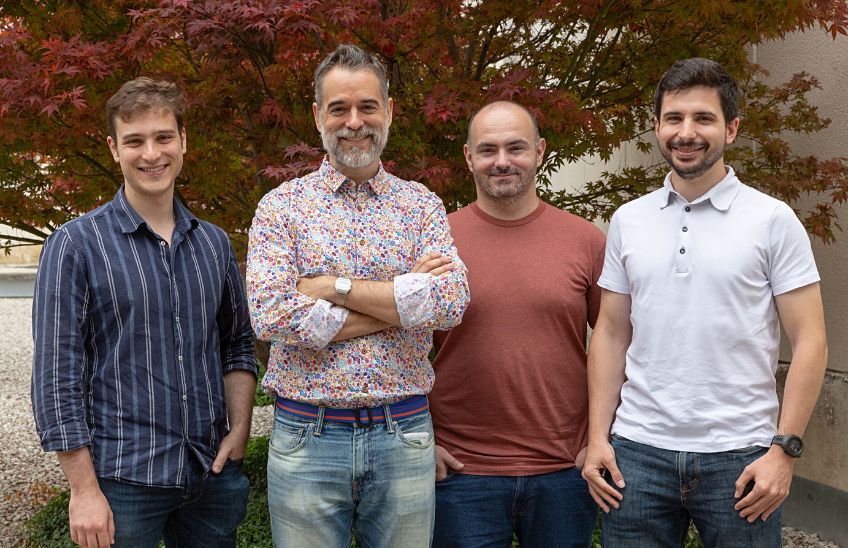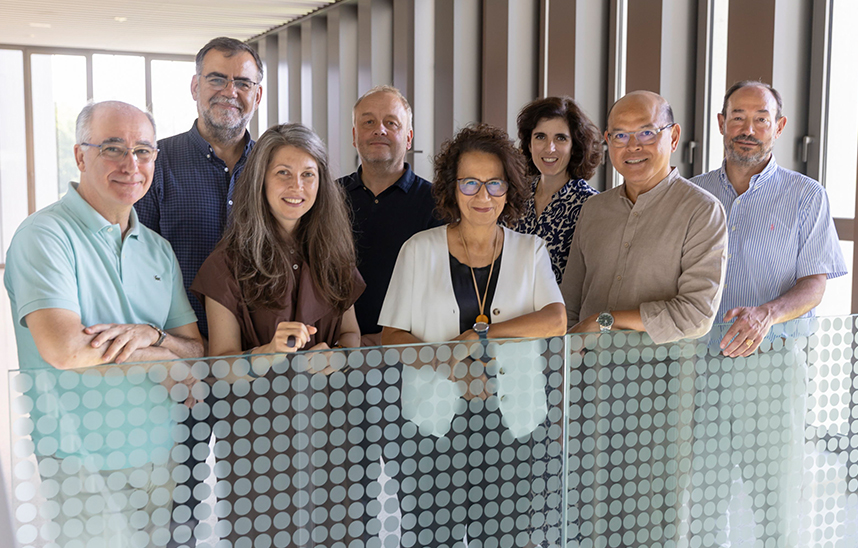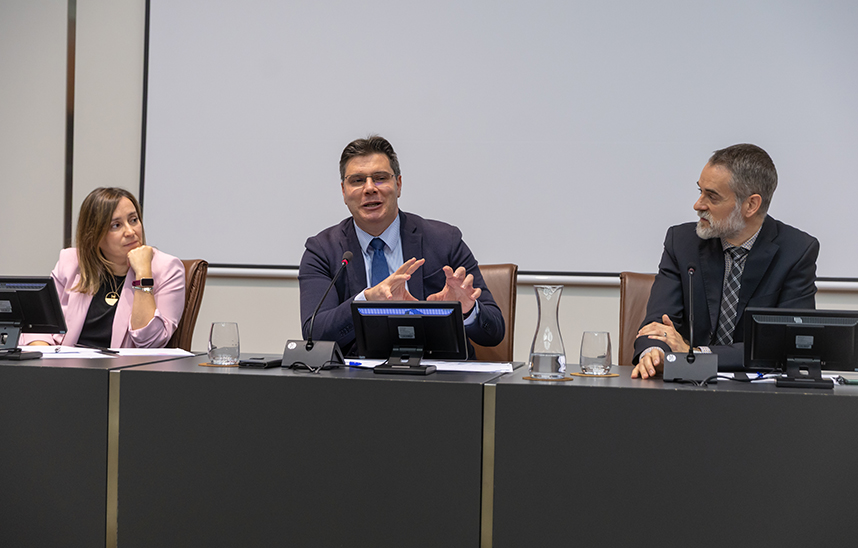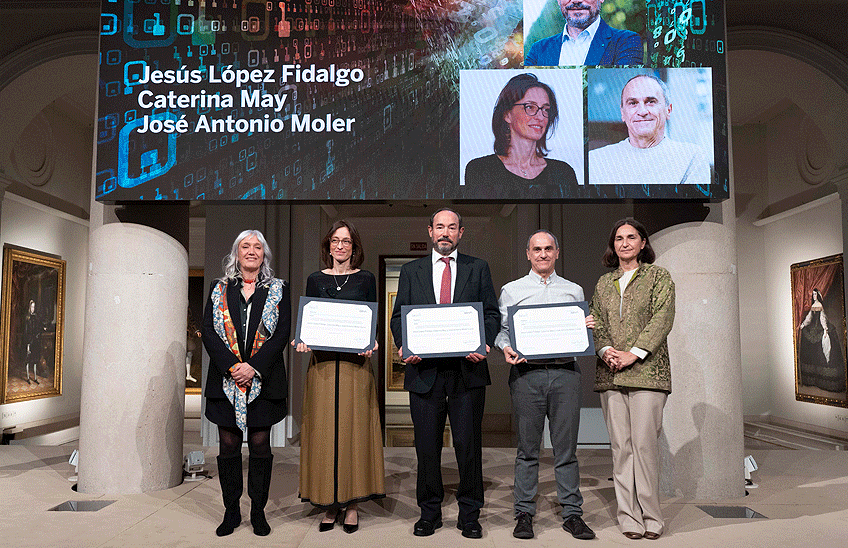The University participates in a European project of research that applies 'big data' to improve therapy against breast cancer.
The data high school of Science of the and Artificial Intelligence DATAI of the academic center aims to design an algorithm to determine which patients with tumors with worse prognosis will respond positively to neoadjuvant treatment.

PhotoManuelCastells/From left to right, researchers from the University of Navarra participating in the project ERA PerMed PORTRAIT: Marcos López de Castro, Rubén Armañanzas Arnedillo, José González Gomáriz and Carlos de la Calle Arroyo.
19 | 07 | 2023
The high school of Science of the data and Artificial Intelligence of the DATAI Unive rsity participates in aproject of research European that applies the science of the data to improve therapies against breast cancer. The goal of the team led by DATAI's researcher , Rubén Armañanzas Arnedillo, consists of designing an algorithm to predict which patients, diagnosed with the worst prognosis tumors, Her2+ and Triple Negative, will respond positively to neoadjuvant treatment.
Neoadjuvant therapy (NAT) is the standard initial treatment for breast cancer. Despite the similar clinical presentation , the response to treatment differs widely in each patient due to the influence of the tumor's molecular subject as well as various individual factors, including the microbiota, which play a crucial role in the immune response.
The project ERA PerMed PORTRAIT will perform a classification of patients at the onset of the disease which, together with the assessment of other common criteria (age, tumor size and location, molecular subtype, family history, health status, etc.), will help to better understand the response to treatments and the design of new personalized therapeutic plans, improving patient care and quality of life.
In addition, we intend to test customized approaches with 3D models to analyze the interaction between the different factors and define the individual panel of features that affect the therapeutic result .
Over the next three years, the DATAI team will analyze samples and clinical data from 200 patients before and after receiving neoadjuvant treatment and determine what characteristics are present in those patients with similar responses to therapy. "There are breast cancer patients with worse prognosis in whom neoadjuvant treatment does not give result; by then, time has elapsed in which the tumor has grown or become irreversible. In these cases, time is money. With this project we are trying to find out in which patients the therapies applied are going to give result and to see what clinical characteristics they present", explains Armañanzas.
DATAI is also participating in the design of a non-invasive tool -a patch- that, when placed on the patient's skin, is able to register the volatile compounds (chemical substances) that emanate through the skin and help determine whether or not the patient will respond favorably to the treatment. "All the patients' data will be integrated through Computational Biology algorithms to identify predictors and develop a non-invasive tool based on the volatiloma," adds Rubén Armañanzas.
Portrait has an budget of 1.3 million euros, of which the University will receive 311,000 euros, financed by the Government of Navarra. The University of Navarra participates in this project together with six other partners: IRCCS Istituto Romagnolo per lo Studio dei Tumori (IRST) "Dino Amadori" (Italy), which is the coordinator of project; Inserm Délégation Régionale Nord Ouest (France); IRCCS Centro di Riferimento Oncologico di Aviano (CRO) (Italy); Fundación para la research Biosanitaria en Andalucía Oeste (FIBAO) (Spain); University of Heidelberg/ Faculty of Law/BioQuant Centre (Germany); and Hadassah Medical Organisation (Israel).



